| ||||||
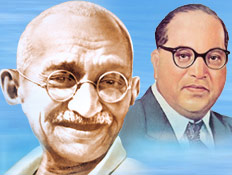 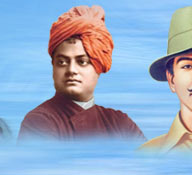 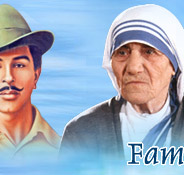 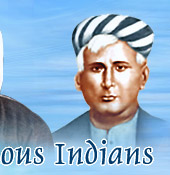 |
Lifestyle Lounge | Weddings in India | Yoga | Home Decor | Beauty | Astrology | Fitness | Nutrition | Gift Ideas | Party Ideas | Spirituality |
Here is a brief biography and history of Sardar Vallabhai Patel. Read information on life of Indian freedom fighter Sardar Vallabh Bhai Patel. Sardar Patel Biography
Born: October 31, 1875 Died: December 15, 1950 Achievements: Successfully led Kheda Satyagraha and Bardoli revolt against British government; elected Ahmedabad's municipal president in 1922, 1924 and 1927; elected Congress President in 1931; was independent India's first Deputy Prime Minister and Home Minister; played a key role in political integration of India; conferred Bharat Ratna in 1991. Sardar Patel was popularly known as Iron Man of India. His full name was Vallabhbhai Patel. He played a leading role in the Indian freedom struggle and became the first Deputy Prime Minister and Home Minister of India. He is credited with achieving political integration of India. Vallabhbhai Patel was born on October 31, 1875 in Nadiad, a small village in Gujarat. His father Jhaverbhai was a farmer and mother Laad Bai was a simple lady. Sardar Vallabhai's early education took place in Karamsad. Then he joined a school in Petlad. After two years he joined a high school in a town called Nadiad. He passed his high school examination in 1896. Sardar Vallabhbhai Patel was a brilliant student throughout his schooling. Vallabhbhai wanted to become a barrister. To realize this ambition he had to go to England. But he did not have the financial means to even join a college India. In those days a candidate could study in private and sit for an examination in Law. Sardar Vallabh Bhai Patel borrowed books from a lawyer of his acquaintance and studied at home. Occasionally he attended courts of law and listened attentively to the arguments of lawyer. Vallabhbhai passed the Law examination with flying colours. Sardar Vallabhbhai Patel started his Law practice in Godhra. Soon his practice flourished. He got married to Jhaberaba. In 1904, he got a baby daughter Maniben, and in 1905 his son Dahyabhai was born. Vallabhbhai sent his elder brother Vitthalbhai, who himself was a lawyer, to England for higher studies in Law. Patel was only thirty-three years old when his wife died. He did not wish to marry again. After his brother's return, Vallabhbhai went to England. He studied with single-minded devotion and stood first in the Barrister-at-Law Examination. Sardar Patel returned to India in 1913 and started his practice in Ahmedabad. Soon he became popular. At the urging of his friends, Patel contested and won elections to become the sanitation commissioner of Ahmedabad in 1917. Sardar Patel was deeply impressed by Gandhiji's success in Champaran Satyagraha. In 1918, there was a drought in the Kheda division of Gujarat. Peasants asked for relief from the high rate of taxes but the British government refused. Gandhiji took up peasants cause but could not devote his full time in Kheda. He was looking for someone who could lead the struggle in his absence. At this point Sardar Patel volunteered to come forward and lead the struggle. He gave up his lucrative legal practice and entered public life. Vallabhbhai successfully led peasants revolt in Kheda and the revolt ended in 1919 when the British government agreed to suspend collection of revenue and roll back the rates. Kheda Satyagraha turned Vallabhbhai Patel into a national hero. Vallabhbhai supported Gandhi's Non-Cooperation Movement, and as president of the Gujarat Congress, helped in organizing bonfires of British goods in Ahmedabad. He gave up his English clothes and started wearing Khadi. Sardar Vallabh Bhai Patel was elected Ahmedabad's municipal president in 1922, 1924 and 1927. During his terms, Ahmedabad was extended a major supply of electricity and underwent major education reforms. Drainage and sanitation systems were extended over all the city. In 1928, Bardoli Taluka in Gujarat suffered from floods and famine. In this hour of distress the British government raised the revenue taxes by thirty percent. Sardar Patel took up cudgels on behalf of the farmers and appealed to the Governor to reduce the taxes. The Governor refused and the government even announced the date of the collection of the taxes. Sardar Patel organized the farmers and told them not to pay even a single pie of tax. The government tried to repress the revolt but ultimately bowed before Vallabhbhai Patel. It was during the struggle and after the victory in Bardoli that caused intense excitement across India, that Patel was increasingly addressed by his colleagues and followers as Sardar. Disobedience Movement in 1930. After the signing of Gandhi-Irwin pact in 1931, Sardar Patel was released and he was elected Congress president for its 1931 session in Karachi. Upon the failure of the Round Table Conference in London, Gandhiji and Sardar Patel were arrested in January 1932 and imprisoned in the Yeravada Central Jail. During this term of imprisonment, Sardar Patel and Mahatma Gandhi grew close to one another, and the two developed a close bond of affection, trust, and frankness without reserve. Sardar Patel was finally released in July 1934. In August 1942, the Congress launched the Quit India Movement. The government jailed all the important leaders of the Congress, including Vallabhai Patel. All the leaders were released after three years. After achieving independence on 15th of August 1947, Pandit Jawaharlal Nehru became the first Prime Minister of independent India and Sardar Patel became the Deputy Prime Minister. He was in charge of Home Affairs, Information and Broadcasting and the Ministry of States. There were 565 princely states in India at that time. Some of the Maharajas and Nawabs who ruled over these were sensible and patriotic. But most of them were drunk with wealth and power. They were dreaming of becoming independent rulers once the British quit India. They argued that the government of free India should treat them as equals. Some of them went to the extent of planning to send their representatives to the United Nations Organization. Patel invoked the patriotism of India's monarchs, asking them to join in the freedom of their nation and act as responsible rulers who cared about the future of their people. He persuaded the princes of 565 states of the impossibility of independence from the Indian republic, especially in the presence of growing opposition from their subjects. With great wisdom and political foresight, he consolidated the small kingdoms. The public was with him. He tackled the Nizam of Hyderabad and the Nawab of Junagarh who initially did not want to join India. Sardar Patel's untiring efforts towards the unity of the country brought success. He united a scattered nation without much bloodshed. Due to the achievement of this massive task, Sardar Patel got the title of 'Iron Man'. Sardar Patel died of cardiac arrest on December 15, 1950. For his services to the nation Sardar Patel was conferred with Bharat Ratna in 1991. |  Annie Besant Annie Besant Aruna Asaf Ali Aruna Asaf Ali Aurobindo Ghose Aurobindo Ghose Bal Gangadhar Tilak Bal Gangadhar Tilak Shaheed Bhagat Singh Shaheed Bhagat Singh Dr. B.R. Ambedkar Dr. B.R. Ambedkar Chandrashekhar Azad Chandrashekhar Azad Dadabhai Naoroji Dadabhai Naoroji Gopal Krishna Gokhale Gopal Krishna Gokhale Jawaharlal Nehru Jawaharlal Nehru Lala Lajpat Rai Lala Lajpat Rai Lal Bahadur Shastri Lal Bahadur Shastri Maulana Abul Kalam Azad Maulana Abul Kalam Azad Motilal Nehru Motilal Nehru Dr. Rajendra Prasad Dr. Rajendra Prasad Rajiv Gandhi Rajiv Gandhi Sardar Patel Sardar Patel Sarojini Naidu Sarojini Naidu Sarvepalli Radhakrishnan Sarvepalli Radhakrishnan Subhas Chandra Bose Subhas Chandra Bose Veer Savarkar Veer Savarkar Kasturba Gandhi Kasturba Gandhi Madam Cama Madam Cama Rajkumari Amrit Kaur Rajkumari Amrit Kaur Sucheta Kriplani Sucheta Kriplani Vijaya Lakshmi Pandit Vijaya Lakshmi Pandit Abdul Ghaffar Khan Abdul Ghaffar Khan Ajmal Khan Ajmal Khan Pattabhi Sitaramayya Pattabhi Sitaramayya Bipin Chandra Pal Bipin Chandra Pal Chittaranjan Das Chittaranjan Das Chakravarthi Rajagopalachari Chakravarthi Rajagopalachari Gopinath Bordoloi Gopinath Bordoloi Jayaprakash Narayan Jayaprakash Narayan K Kamaraj K Kamaraj Mangal Pandey Mangal Pandey Mridula Sarabhai Mridula Sarabhai Rani Gaidinliu Rani Gaidinliu S. Srinivasa Iyengar S. Srinivasa Iyengar Sir Surendranath Banerjee Sir Surendranath Banerjee Deendayal Upadhyaya Deendayal Upadhyaya Dr Zakir Hussain Dr Zakir Hussain Fakhruddin Ali Ahmed Fakhruddin Ali Ahmed Neelam Sanjiva Reddy Neelam Sanjiva Reddy Ram Manohar Lohia Ram Manohar Lohia C.N. Annadurai C.N. Annadurai Jyoti Basu Jyoti Basu K.R. Narayanan K.R. Narayanan Pramod Mahajan Pramod Mahajan V. V. Giri V. V. Giri Chandra Shekhar Chandra Shekhar Chaudhary Devi Lal Chaudhary Devi Lal Chempakaraman Pillai Chempakaraman Pillai Indrajit Gupta Indrajit Gupta J.B. Kripalani J.B. Kripalani P.V. Narasimha Rao P.V. Narasimha Rao R. Venkataraman R. Venkataraman Rajesh Pilot Rajesh Pilot Vijayaraje Scindia Vijayaraje Scindia V.P. Singh V.P. Singh Charan Singh Charan Singh Mohan Kumaramangalam Mohan Kumaramangalam R. K. Shanmukham Chetty R. K. Shanmukham Chetty Rangarajan Kumaramangalam Rangarajan Kumaramangalam Siddhartha Shankar Ray Siddhartha Shankar Ray T.Sadasivam T.Sadasivam  T.T. Krishnamachari T.T. Krishnamachari Acharya Narendra Dev Acharya Narendra Dev Bagha Jatin Bagha Jatin Bhulabhai Desai Bhulabhai Desai Bidhan Chandra Roy Bidhan Chandra Roy Chidambaram Subramaniam Chidambaram Subramaniam E M S Namboodiripad E M S Namboodiripad E V Ramasamy E V Ramasamy Ganesh Shankar Vidyarthi Ganesh Shankar Vidyarthi  Giani Zail Singh Giani Zail Singh Gulzarilal Nanda Gulzarilal Nanda  Hasrat Mohani Hasrat Mohani Kamala Nehru Kamala Nehru Khudiram Bose Khudiram Bose M. G Ramachandran M. G Ramachandran Madan Mohan Malaviya Madan Mohan Malaviya Madhavrao Scindia Madhavrao Scindia Morarji Desai Morarji Desai N. T. Rama Rao N. T. Rama Rao Neelam Sanjiva Reddy Neelam Sanjiva Reddy Rafi Ahmed Kidwai Rafi Ahmed Kidwai Ram Prasad Bismil Ram Prasad Bismil Rash Behari Bose Rash Behari Bose S. Satyamurti S. Satyamurti Shankar Dayal Sharma Shankar Dayal Sharma Shyamji Krishna Varma Shyamji Krishna Varma Shyama Prasad Mookerjee Shyama Prasad Mookerjee V O Chidambaram Pillai V O Chidambaram Pillai V. K. Krishna Menon V. K. Krishna Menon Vithalbhai Patel Vithalbhai Patel Y S Rajasekhara Reddy Y S Rajasekhara Reddy Purushottam Das Tandon Purushottam Das Tandon Atal Bihari Vajpayee Atal Bihari Vajpayee Bhairon Singh Shekhawat Bhairon Singh Shekhawat Biju Patnaik Biju Patnaik E.M.S. Namboodiripad E.M.S. Namboodiripad Farooq Abdullah Farooq Abdullah George Fernandes George Fernandes H. D. Deve Gowda H. D. Deve Gowda I.K. Gujral I.K. Gujral Jaswant Singh Jaswant Singh Jayalalithaa Jayaram Jayalalithaa Jayaram Kanshi Ram Kanshi Ram Lal Krishna Advani Lal Krishna Advani Lalu Prasad Yadav Lalu Prasad Yadav Mamata Banerjee Mamata Banerjee Mani Shankar Aiyar Mani Shankar Aiyar Manmohan Singh Manmohan Singh Mayawati Mayawati M. Karunanidhi M. Karunanidhi Mohammad Hamid Ansari Mohammad Hamid Ansari Mulayam Singh Yadav Mulayam Singh Yadav Narendra Modi Narendra Modi Naveen Patnaik Naveen Patnaik Nithish Kumar Nithish Kumar P. Chidambaram P. Chidambaram Prakash Karat Prakash Karat Prakash Singh Badal Prakash Singh Badal Pranab Mukherjee Pranab Mukherjee Pratibha Devisingh Patil Pratibha Devisingh Patil Sharad Pawar Sharad Pawar Sheikh Abdullah Sheikh Abdullah Sheila Dikshit Sheila Dikshit Shivraj Singh Chouhan Shivraj Singh Chouhan Somnath Chatterjee Somnath Chatterjee Sonia Gandhi Sonia Gandhi Sushma Swaraj Sushma Swaraj Uma Bharti Uma Bharti Yashwant Sinha Yashwant Sinha Indian Entrepreneurs Indian Entrepreneurs Painters Painters Musicians Musicians NRI Entrepreneurs NRI Entrepreneurs Writers Writers Leaders Leaders Scientists Scientists Social Reformers Social Reformers Others Others Classical Dancers Classical Dancers Indian Singers Indian Singers India Film Personalities India Film Personalities Indian Vocalists Indian Vocalists | |||||||
Copyright © iloveindia.com All Rights Reserved. |


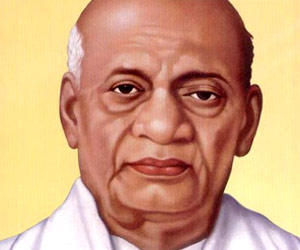
कोई टिप्पणी नहीं:
एक टिप्पणी भेजें